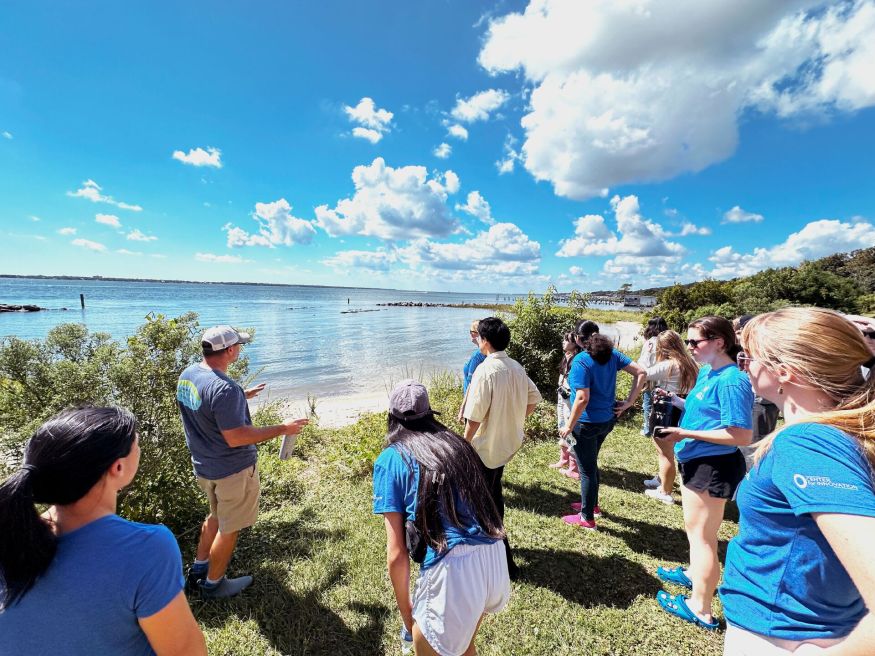Overview
Lydia Olander is a program director at the Nicholas Institute for Energy Environment & Sustainability at Duke University and adjunct professor at the Nicholas School of the Environment. She works on improving evidence-based policy and accelerating implementation of climate resilience, nature-based solutions, natural capital accounting, and environmental markets. She leads the National Ecosystem Services Partnership and sits on Duke’s Climate Commitment action team. She recently spent two years with the Biden administration at the Council on Environmental Quality as Director of Nature based Resilience and before that spent five years on the Environmental Advisory Board for the US Army Corps of Engineers. She is a fellow of the American Association for the Advancement of Science (AAAS) and widely published researcher. Prior to joining the Nicholas Institute, she spent a year as an AAAS Congressional Science and Technology Fellow working with Senator Joseph Lieberman on environmental and energy issues. She was a college scholar at Cornell University and earned her Master of Forest Science from Yale University and Ph.D. from Stanford University.
Current Appointments & Affiliations
Adjunct Professor in the Division of Environmental Social Systems
·
2025 - Present
Environmental Social Systems,
Nicholas School of the Environment
Area Director of the Ecosystem Services Program in the Nicholas Institute for Energy, Environment and Sustainability
·
2013 - Present
Nicholas Institute for Energy, Environment & Sustainability,
University Institutes and Centers
Recent Publications
Building a Stronger, Safer, and More Energy-Smart North Carolina—A Workshop Summary
Report · July 24, 2025 Almost a year after Hurricane Helene poured over western North Carolina, the region is rebuilding—and communities and businesses across the state are reckoning with the increased likelihood of extreme weather events. In June, Duke University’s Nicholas Ins ... Open Access Link to item CiteEnvironmental and Ecosystem Services in Benefit–Cost Analysis
Journal Article Review of Environmental Economics and Policy · June 1, 2025 The 2023 reissuance of US Office of Management and Budget Circular A-4 and related federal activities to modernize regulation have elevated the importance of services from the environment—broadly known as ecosystem services—and have clarified guidance for ... Full text CiteAdvancing consistent socio-economic monitoring of coastal ecosystem restoration through collaborative metric development
Journal Article Communications Earth and Environment · December 1, 2024 Ecological restoration programs increasingly aim to provide socio-economic and environmental benefits. However, monitoring of socio-economic outcomes of these programs lags behind monitoring of ecological outcomes. Socio-economic methods are less establish ... Full text CiteRecent Grants
IUCRC Phase I Duke University: Center for Innovation in Risk-analysis for Climate Adaption and Decision-making (CIRCAD)
ResearchCo-Principal Investigator · Awarded by National Science Foundation · 2025 - 2030NC CPRG implementation grant - coastal program design/project selection and research coordination
ResearchPrincipal Investigator · Awarded by North Carolina Coastal Federation · 2025 - 2030Atlantic Conservation Coalition CPRG Implementation Proposal
ResearchPrincipal Investigator · Awarded by NC Department of Natural and Cultural Resources · 2024 - 2029View All Grants
Education, Training & Certifications
Stanford University ·
2002
Ph.D.




